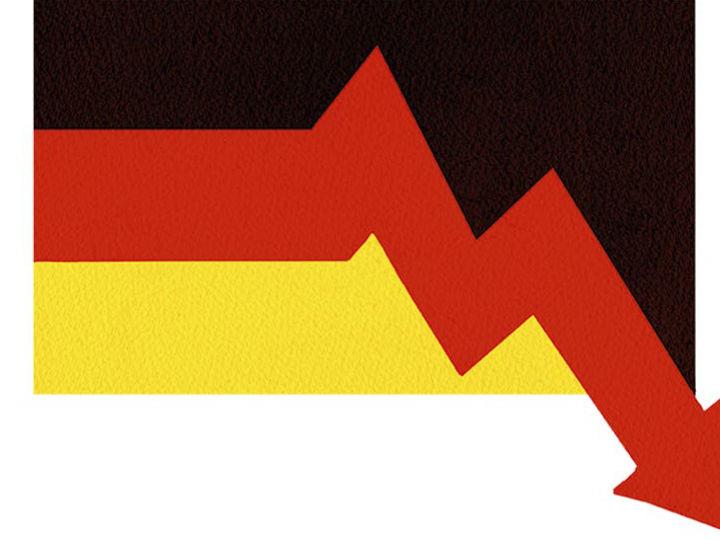Superclans: Global Entrepreneurial Families and Investor Resilience
We live in an age of disruption and, with every passing day, we receive confirmation that only those who smartly embrace change will be able to survive in an increasingly competitive business environment

The world as we have known it for the past 50 years is falling apart. A new nationalism is on the rise, free trade is threatened and identified as the cause of the global predicament, while the resurgence of hard power cannot be discarded. Consequently, taming the forces of the market is secondary in relation to putting the market in service of power. These are all macro-trends whose meaning and effects should be familiar to every family-owned conglomerate, to every CEO or family member groomed to be the next leader.
By
Radu Magdin*
We live in an age of disruption and, with every passing day, we receive confirmation that only those who smartly embrace change will be able to survive in an increasingly competitive business environment.
In the Western world, many of the most successful companies were in their infancy or non-existent 20 years ago; moreover, even for fine observers, the needs they currently serve were hard to predict not so many years ago.
The days of the internal combustion engine, the core of the industrial revolution, are numbered, as many countries bet on electric cars and say that all new cars must be zero-emission by 2050. On the Internet, one popular (and frightening at the same time) quiz is whether your job will be automated in the next 10 years.
In this context, looking at global entrepreneurial families could be a great starting point for those interested in mastering adaptation and resilience.
A backbone of the economy in almost all countries, family-owned companies have outperformed non-family-owned companies since 2006;the explanation, the Credit Suisse’s Family 1000 report argues, hinges on the focus on long-term, R&D, and on fierce independence.
The long-term perspective is not incompatible with change, as a Deloitte study of nearly 100 future leaders of family-owned companies across the EMEA region has revealed: 80% of the next generation of family business leaders say that their leadership style will be different compared to the previous generation, while 51% intend to take more risks than their predecessors, but in a more controlled way.
In the booming Asia, according to Forbes, the total worth of the continent’s 50 Richest Families was $519 billion in 2016; for the assessment, the publication considered only the wealth rooted in Asia and the situation in which the participation in building that fortune has to extend at least three generations. Simply put, the Asian family-owned conglomerates are thriving, even in this age of disruption.
But even these champions of resilience are vulnerable to the changing global tides. In the end, not everyone is a French Rothschild to totally reinvent oneself two times in fifty years. It suffices to only look across the Alps at the recent struggles of the Sandoz Foundation to understand the magnitude of the threat.
As the Deloitte study shows, a three-pronged challenge lies ahead for this type of business: keeping the family values alive, growing the company in a rapidly-changing economic and business environment, and retaining independence in ownership. Without proper preparation, planning, and wise advisors, these challenges risk becoming an impossible trinity.
A E&Y 2014 report expands on the secrets to lasting success: clear succession strategy, women empowerment, boards of directors expertly managed by families, healthy communication and conflict, leveraging the family business as an essential tool for branding, and purposeful engagement in philanthropic activities.
These are parts of the broader framework, that have to be tailored to each situation. Here, I will only highlight two points essential for the resilience, adaption, and transformation of these “superclans”. It is all about the correct vision and the right approach. As always, aligning goals, means, and resources is key.
Mastering adaptation to change and seizing new opportunities is part of the toolkit that will allow these businesses to safely navigate a world whose brand is now crisis. One aspect to take into consideration is the structural landscape.
The challenge is how to avoid becoming the victim of politics and geopolitics, all by building the resilience capacity that is needed in today's reality. Instead of only looking at the strength of the ship, it is worth paying attention to how agitated the ocean is.
This requires enhanced ability to assess and mitigate political risks and a proper understanding of the best manner of approaching the relationship with decision-makers and politicians. In an era dominated by high expectations and equally high disillusionment, it is no surprise that the blame-shifting has made many politicians to transform successful businesses into scapegoats.
A skilled analyst would say that superficial stakeholder engagement and CSR programs are not enough to break the wall separating the two worlds; direct communication with the general public, one which goes beyond marketing and produces a narrative for the role the business plays in the community, will in the future tackle heads-on the apparent incommensurability.
The economic development and an aspirational lower middle class will continue to ask for more openness, transparency, and accountability.
These are more general evolutions, on top of what has become the new normal in international politics: an assertive China which assumes not only a robust regional agenda, but which gives political contours to its status of global economic powerhouse; a fractured transatlantic relation; a European Union struggling to find its post-Brexit sense of purpose; a Russia that works against the status quo; and the spectre of disruptive great power competition, trade wars, and of a new arms race (even in the nuclear domain).
The world as we have known it for the past 50 years is falling apart. A new nationalism is on the rise, free trade is threatened and identified as the cause of the global predicament, while the resurgence of hard power cannot be discarded.
Consequently, taming the forces of the market is secondary in relation to putting the market in service of power. These are all macro-trends whose meaning and effects should be familiar to every family-owned conglomerate, to every CEO or family member groomed to be the next leader.
In the race for survival, they are the map towards new markets, new industries, and new investments. Correctly analysing the state, the society, and politics will show not only how to weather the storm, but also how to diversify and where to invest.
The other fundamental aspect is about managing succession and major changes in leadership. For state- or privately-owned enterprises, the pressure is not as strong as the one for family conglomerates. Although, obviously, over the recent decades, mechanisms were put in place to ensure stability, today they are sensitive to risks and disruption and the limited number of pillars which support the healthy business might easily disappear.
It is my belief that family-owned big businesses are a natural target for attacks and their solidity depends on how clearly the mandate is understood and implemented at the top. Here comes the role of what I call “the resilience coach” - to help CEOs understand the stakes and the risks, to offer tailor-made assessment and judgement. The role of this advisor is to challenge deeply-held business and cultural assumptions, to be the pinnacle of a “red team” approach, to advance the mission by complementing.
Those who wear the scars of crises and transitions, those whose experience has been forged beyond well-established societies and institutions could bring to the table the positive energy of disruption. This is how the necessary antibodies to stay on top of things when the crises hit will be developed. The venom of crisis becomes the antidote to messy change.
Some family-owned companies are better prepared than others to confront the future, as some have had their fair share of storms and successions. However, even if you are a Wallenberg, a Rothschild, a Sabanci, a Chan, a Koch or a Dangote, embracing unorthodox change and approaches will, in the end, make the difference between the future and a future (still) at the top.
*A strategic communications analyst and consultant. He has advised the Prime Ministers of Romania and Moldova
MORE ON Business Essentials
- Political mindset: five lessons for CEOs
- 5 commandments for tycoons and other power players in a shifting world order
- Company boards and power games
- #ManageCompetition - A Recipe for Global Success in Strategic Competition Times



 By: N. Peter Kramer
By: N. Peter Kramer

